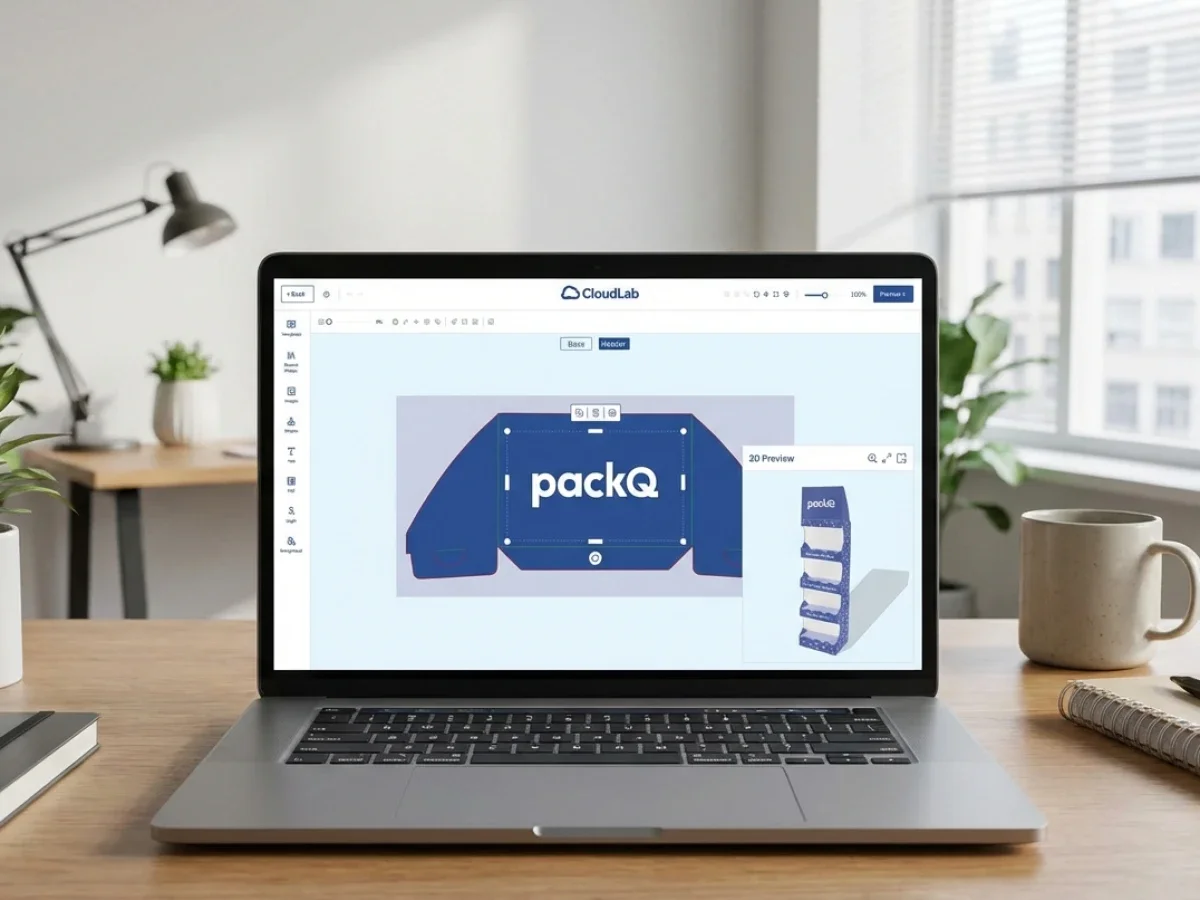ECMA Standards for Folding Cartons: Structure & Relevance
.webp)
ECMA standards define folding carton structures, ensuring consistency and efficiency across the industry. packQ integrates these templates directly, enabling businesses to configure safe, accurate packaging online with speed, automation, and global compatibility.
Why Standards Matter in Packaging
Packaging is a global industry, but without shared rules, chaos would reign. Every producer would define cartons differently, leading to errors, miscommunication, and costly inefficiencies.
The European Carton Makers Association (ECMA) solved this decades ago by creating a standardized catalog of folding carton types. Today, these standards are the backbone of packaging production worldwide.
And with the rise of Web-to-Pack, standards have become even more critical. Software like packQ integrates ECMA codes directly, empowering non-technical users to configure production-safe folding cartons online—without needing CAD expertise.
What Are ECMA Standards?
Definition
ECMA standards are structural definitions for folding cartons, codified in a universal system. Each ECMA code represents a unique design type, such as tuck-in boxes, sleeves, or trays.
Purpose
- Consistency: Everyone speaks the same technical language.
- Efficiency: No need to reinvent designs for each order.
- Compatibility: Designs work across CAD, machines, and geographies.
The Structure of ECMA Standards
Code System
- Letters define categories (A, B, E, etc.).
- Numbers define subtypes.
- Each code includes technical drawings and specifications.
Example Categories
- ECMA A-series: Rectangular folding cartons with tuck-in flaps.
- ECMA B-series: Tube-shaped cartons.
- ECMA E-series: Sleeves and slipcases.
Features of the System
- Covers closures, flaps, and bottoms.
- Provides geometric precision.
- Accepted as industry-wide communication standard.
Business Relevance of ECMA Standards
Speed
With pre-defined templates, companies avoid lengthy design phases.
Error Prevention
Designs are proven and tested. Miscommunication between brand, designer, and producer is minimized.
Scalability
From local printers to multinational brands, ECMA standards ensure global compatibility.
Trust
Clients feel secure when ordering packaging based on recognized standards.
How packQ Integrates ECMA Standards
Template Library
packQ includes over 120 ECMA templates, parametric and flexible.
Parametric Adaptation
- Change dimensions without breaking the structure.
- Output remains production-safe.
Automated Dieline Generation
- packQ creates print-ready PDFs and CAD files from ECMA codes instantly.
Customer-Friendly Presentation
- Instead of showing technical codes, packQ presents visual previews.
- Users select box types intuitively, while the software applies ECMA logic in the background.
Benefits of ECMA + packQ for Businesses
For Printers
- Reduce prepress workload.
- Serve SMEs with confidence.
For Packaging Manufacturers
- Ensure machine compatibility.
- Standardize production across plants.
For E-Commerce Platforms
- Offer safe carton templates to non-experts.
- Reduce risk of invalid configurations.
For Brand Owners
- Achieve CI consistency across global markets.
- Speed up launches with pre-approved carton structures.
ECMA vs. Non-Standardized Design
Non-Standard Risks
- Inconsistent communication.
- Higher error rates.
- More manual checking.
ECMA Advantages
- Shared technical language.
- Reduced costs and waste.
- Increased automation potential.
Technological Strength: ECMA in Digital Workflows
CAD Integration
Most CAD systems recognize ECMA codes.
Web-to-Pack Integration
packQ ensures ECMA templates are accessible to end customers—not just engineers.
Production Line Compatibility
Machines can map ECMA codes directly to existing tooling.
Case Examples of ECMA in Practice with packQ
Example 1: Folding Carton Producer
By implementing packQ with ECMA templates, a producer reduced design cycle times by 60%.
Example 2: Global Brand
A brand used ECMA templates across subsidiaries, ensuring packaging consistency in 12 countries.
Example 3: SME E-Commerce Brand
With packQ, the brand created professional cartons in minutes, previously only achievable through expensive agencies.
.webp)
Best Practices for Leveraging ECMA Standards
1. Start with Standard Templates
Avoid unnecessary complexity by using ECMA defaults.
2. Train Sales Teams
Teach teams to position ECMA as a quality and safety guarantee.
3. Integrate ECMA in Portals
Offer end customers a selection of standard-based designs.
4. Combine with Preflight
Use packQ’s preflight to catch errors on top of ECMA safeguards.
5. Showcase Visuals
Promote the reliability of ECMA templates with intuitive 3D previews.
packQ vs. Alternatives in ECMA Implementation
CAD-Only
- ECMA codes accessible, but not customer-friendly.
- Requires expert knowledge.
packQ
- ECMA codes made intuitive for end-users.
- CAD-accurate outputs, customer-friendly interface.
Future of ECMA Standards in Web-to-Pack
Personalization + Standardization
- Combine ECMA templates with VDP to personalize cartons safely.
Global Adoption
- More brands adopting ECMA as default across regions.
Integration with Industry 4.0
- ECMA standards form the data backbone for smart factories.
Practical Tips for Businesses
- Implement ECMA standards through packQ to balance safety and flexibility.
- Educate customers on why standards matter—reducing disputes.
- Automate approvals by combining ECMA with 3D previews.
- Leverage standards globally for consistent branding.
- Integrate ECMA logic with ERP/MIS to streamline order handling.
.webp)
ECMA + packQ = Safe, Scalable Packaging
ECMA standards are not optional—they are the foundation of folding carton production.
With packQ, businesses can unlock their full potential. By making ECMA templates accessible to non-experts, integrating them with automation and 3D previews, packQ ensures speed, safety, and scalability.
For printers, converters, brands, and e-commerce platforms alike, ECMA standards with packQ are the key to modern packaging success.
FAQs
1. What are ECMA standards in packaging?
They are structural definitions for folding cartons, ensuring consistency and safety.
2. Does packQ support ECMA templates?
Yes. packQ includes over 120 ECMA folding carton templates.
3. Why are ECMA standards important for e-commerce?
They ensure even non-experts configure safe, production-ready packaging.
4. How do ECMA codes help manufacturers?
They reduce design time, errors, and miscommunication across teams.
5. Can ECMA be combined with personalization?
Yes. With packQ’s VDP, ECMA-based cartons can be personalized while staying production-safe.





